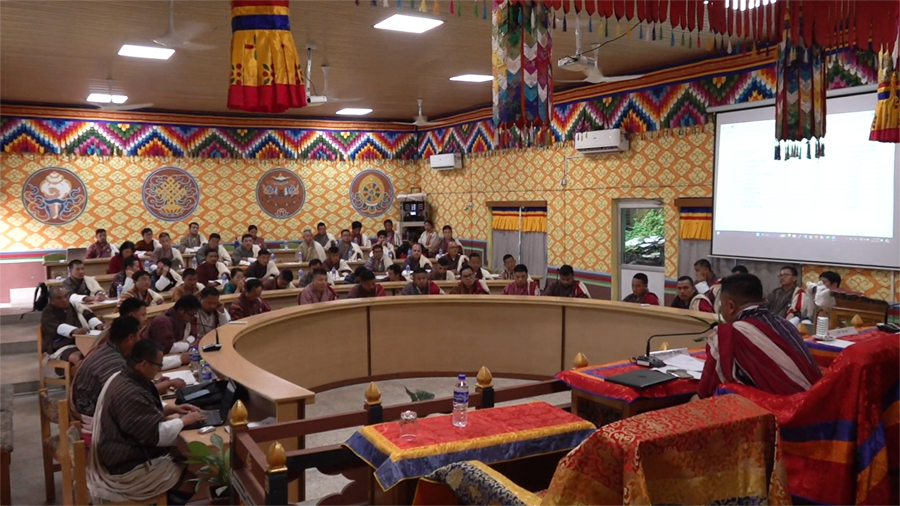
During the recent Samtse Dzongkhag Tshogdu, local leaders expressed concerns about the current rural insurance collection system, which entrusts Tshogpas and Mangmis to collect payments from villagers. They said that the current system could lead to mismanagement and misuse of funds, prompting the DT to take action.
During the meeting, Dophuchen Gup, Phuntsho, highlighted problems with the current system for rural insurance payments, where delays by local leaders cause issues for villagers.
“In the current system, villagers give their insurance payments to Tshogpas and Mangmis, but when these local leaders fail to make timely payments, problems arise. In the 21st century, we need modern solutions. We urge insurance companies to implement better online payment systems to resolve these issues.”
Local leaders expressed frustration over handling cash payments from villagers who can’t access online systems. Some said that with banks far from gewog offices, there’s a risk of mishandling cash.
They also raised concerns about the slow and unreliable online systems and the need for internet data allowances to handle these extra responsibilities.
To address these concerns, they proposed that the Royal Insurance Corporation of Bhutan Limited take over the collection process directly to prevent such issues.
In response, the RICBL Branch Manager in Samtse, clarified that while rural life insurance is fully managed online, rural house insurance currently does not have online services.
“For rural house insurance, an online system will be made available soon. We could not launch it this year, but we hope to do so by next year. As for now, we provide Tshogpas with account numbers and request them to transfer the insurance amount the same day. However, some still face difficulties despite repeated reminders,” said Sonam Zam, a branch manager at RICBL, Samtse.
She added that Tshogpas have been trained on the insurance collection process and the use of RICBL application to improve efficiency and transparency.
However, challenges remain due to the rural setting and limited banking access.
Meanwhile, the Samtse Dzongkhag Tshogdu has decided to formally address the issue by writing to the Prime Minister’s Office and the RICBL.
Passang Dorji, Samtse
Edited by Sonam Pem









